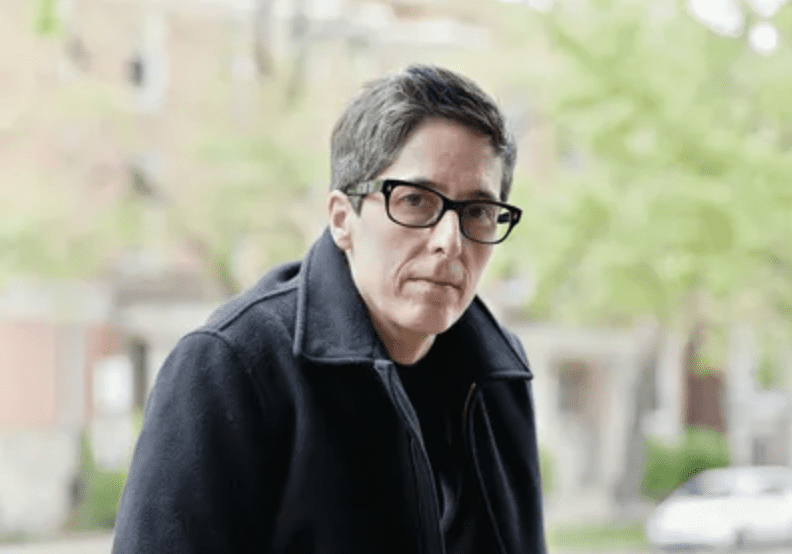Graphic memoirist Alison Bechdel to speak at Yale
Bechdel, who wrote the critically acclaimed graphic memoir “Fun Home,” will address the Yale community on Thursday at 4 p.m. at 53 Wall Street.

Wikimedia Commons
Alison Bechdel, the graphic artist, autobiographical author and MacArthur Genius, will visit Yale on Thursday to speak about her life and writing.
Bechdel first gained prominence for her weekly comic strip “Dykes to Watch Out For.” Running from 1983 to 2008, the comic was an early representation of lesbians in popular culture. In 2006, Bechdel became a bestseller with the graphic memoir “Fun Home,” which was billed as a “family tragicomic.”
The memoir was later adapted as a Broadway musical and won five Tony Awards. Bechdel published her second graphic memoir, titled “Are You My Mother?”, in 2014. Most recently, in 2021, she released the memoir “The Secret to Superhuman Strength.” Bechdel is well known for her vulnerable and honest depictions of family life, sexuality and gender nonconformity.
Bechdel will address the Yale community at 4 p.m. in the auditorium at 53 Wall Street in an event open to the Yale community.
“I think young people today want something that’s really honest and genuine and this is that,” said Ellen Handler Spitz, lecturer in the humanities. “She’s really somebody who wants to say what she believes.”
“Fun Home” chronicles Bechdel’s childhood in Beech Creek, Pennsylvania, where her family owned and operated a funeral parlor. She writes of her fraught relationships with her parents — particularly with her father — who she discovers is gay, as Bechdel herself is. “Fun Home” follows the years before and after Bechdel’s father’s death, which Bechdel suspects is a suicide.
Bechdel came out as a lesbian when she was 19 years old. In a 2015 interview, Bechdel told NPR that she is purposefully open about her sexuality after seeing her father hide his sexuality prior to his death.
“In many ways my life, my professional career has been a reaction to my father’s life, his life of secrecy,” Bechdel said in the interview. “I threw myself into the gay community, into this life as a lesbian cartoonist, deciding I was going to be a professional lesbian. In a way, that was all my way of healing myself.”
Handler Spitz and Sterling Professor of French and humanities R. Howard Bloch invited Bechdel to campus. Handler Spitz said she had heard Bechdel speak before and was stunned by her honesty.
“I was astonished by her because she seemed to me to be a person of such incredible honesty, bravery and authenticity,” Handler Spitz said. “She was able to speak about elements of her life and her feelings and her thoughts that most people never dare to bring forward publicly.”
Though Bechdel had a unique childhood, both Handler Spitz and Bloch said that there are elements that everyone can connect to.
Bechdel’s works cover the themes of love and being loved, alienation and family connections.
“Our capacity for empathy is enlarged by these graphic confessions where a moment in someone else’s life revives a buried moment in our own,” Handler Spitz said. “Sometimes painful, sometimes not, sometimes very different from what is on the page itself but connected in feeling, and, when we encounter it, we are chastened and enriched thereby.”
Handler Spitz said the memoirs are meant to be read slowly, as each element is intentional and adds to the experience. She pointed to the depiction of Bechdel and her mother in “Are You My Mother?” While all the other women featured are blonde, Bechdel and her mother have dark hair. They are twinned and connected in a realm outside of language, Handler Spitz said.
The graphic medium of “Fun Home” also allows for nuances that could not be conveyed in words. Handler Spitz provided the example of the first page of “Fun Home,” in which a game between Bechdel and her father is shown from three different perspectives.
Bloch described Fun Home as a “family scrapbook,” in which the drawings appear as candid snapshots of Bechdel’s childhood.
Students who attend the talk should question what in the memoir is not true, Bloch said. They should take a critical perspective to the question of what someone cannot know about themselves. Bechdel is well known for including ambivalence and ambiguity alongside brutal honesty in her works.
“Not knowing everything is sometimes a good thing in a memoir: a mystery or quest is better than laying out all the facts,” Bechdel said in a 2017 interview.
Bechdel is also known for originating the “Bechdel test,” which assesses films by whether two named female characters discuss something other than a man.
The lecture will be held at 53 Wall Street, former home of the Whitney Humanities Center.
Correction, Nov. 29: This article has been updated to reflect that the Whitney Humanities Center has moved from 53 Wall Street and that Bechdel will speak in the auditorium at 53 Wall Street, not at the center’s new location.







